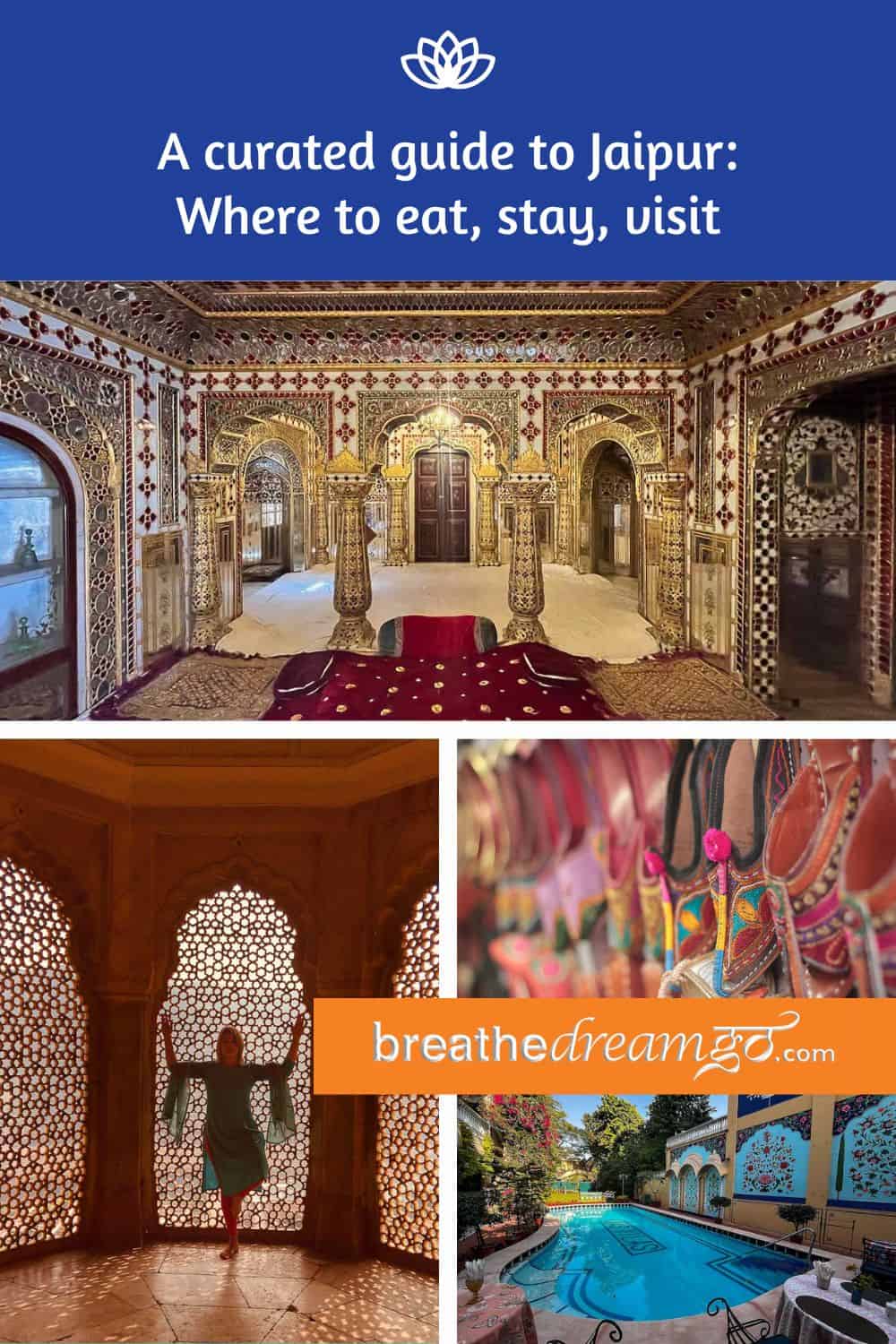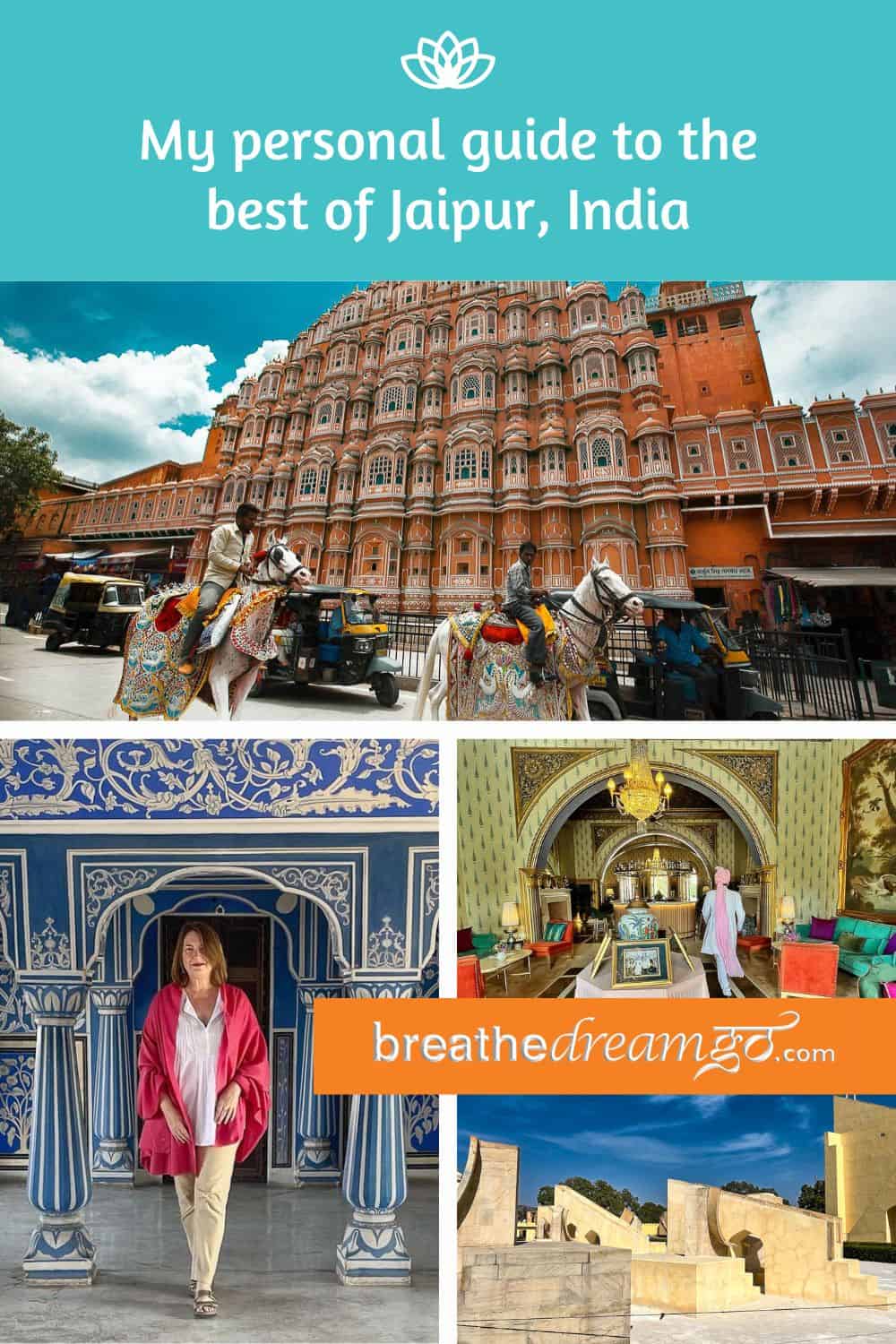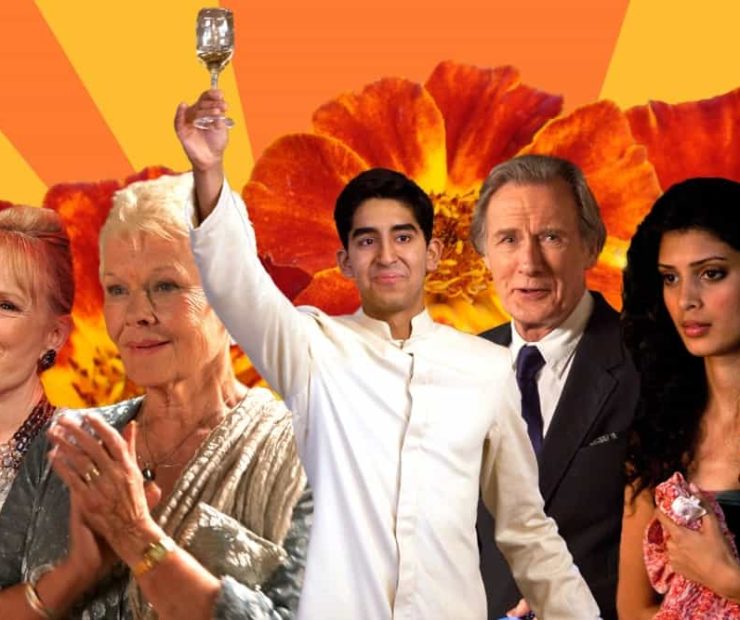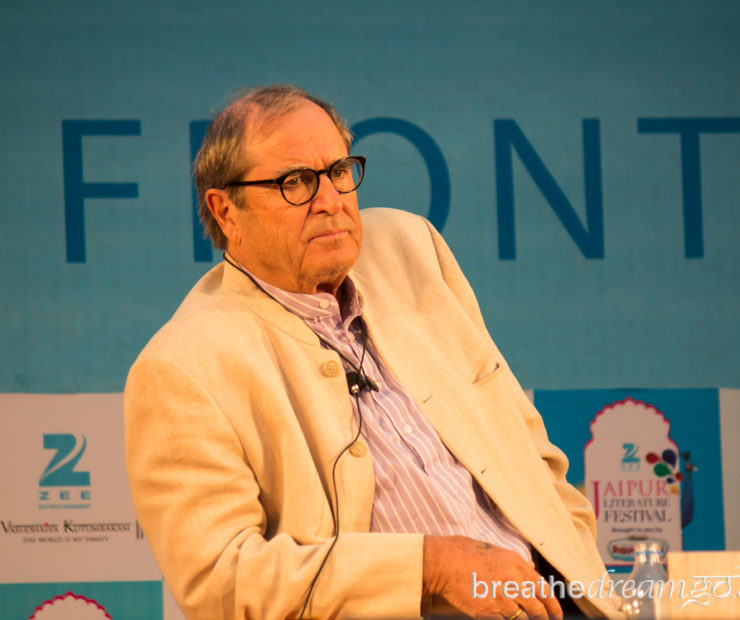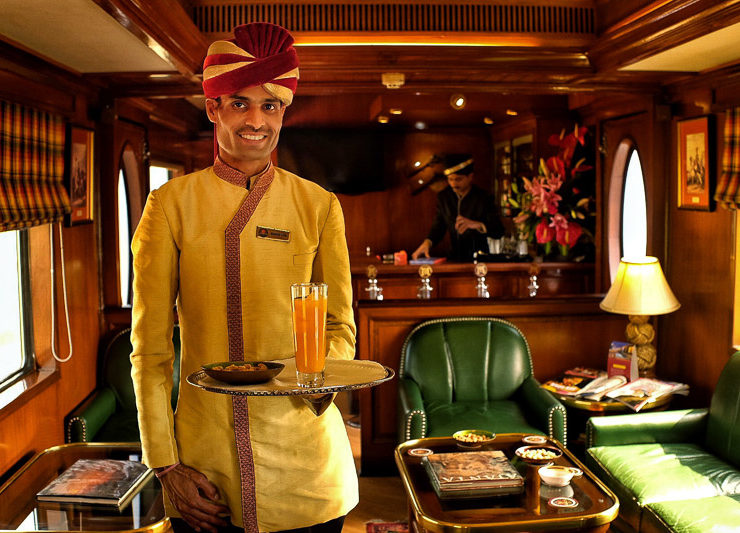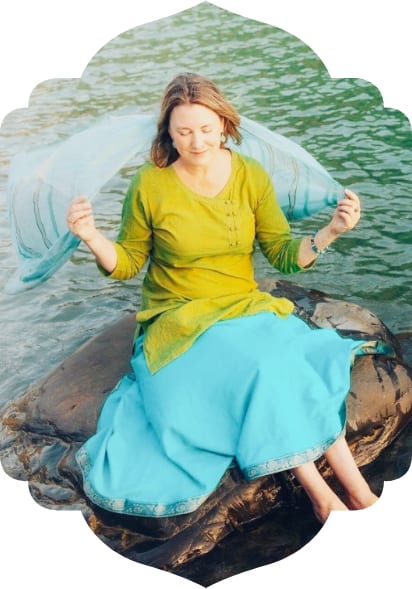Table of Contents
My personal Guide to Jaipur
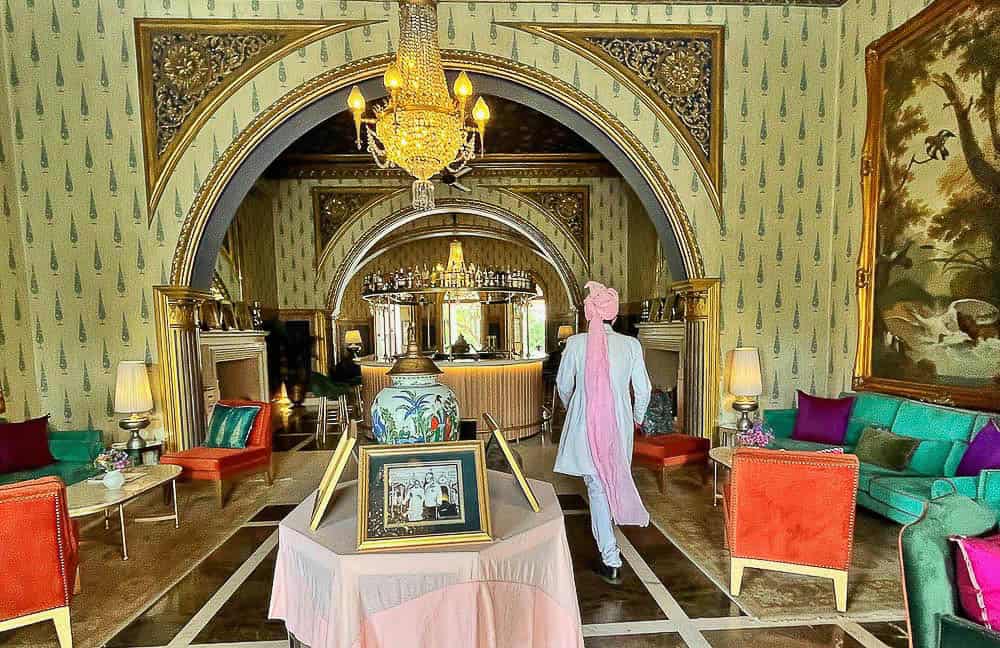
Jaipur is one of my favourite cities in India (in fact, I liked it so much, I moved there!). This curated guide is a labour of love, showcasing my favourite places, the best things to do, where to stay, and where to shop in this magnificent city. Jaipur is a shopper’s paradise and arguably India’s best city for hotels. There’s an incredible amount to see, experience, and enjoy here, and my guide to Jaipur is a collection of my personal favourites. Jaipur is also the capital of the wonderful state of Rajasthan.
While tourists know Jaipur for its gorgeous architecture—including top sites like Amber Fort, City Palace, Jantar Mantar, and Hawa Mahal—and for its pink-hued old city (the famous Pink City), it’s also a vibrant cultural, culinary, and crafts centre.
Jaipur was founded as a commercial hub, designed to be home to artisans and dozens of different crafts and trades. That spirit thrives today. The city is now India’s gemstone capital and one of the world’s leading gemstone cutting and polishing centres. Jewellery stores dot the cityscape, including iconic names like Gem Plaza, Gem Palace, Gem Paradise, and Amrapali.
Explore Jaipur with Breathedreamgo Bespoke
Experience Jaipur with an insider. With Breathedreamgo Bespoke private tours, I am sharing the India I have come to know and love with those who have the time, budget, and interest to deeply immerse in the country and culture. With love from India, Mariellen
Learn MoreBut gems aren’t the only crafts that sparkle here. Jaipur is India’s block printing capital, producing an astounding array of gorgeous printed fabrics in cotton, silk, and other blends. Clothes, curtains, bedspreads, and textiles are available in every hue and price range imaginable.
The city is also renowned for blue pottery, leather juttis (traditional shoes), lac bangles, and countless other arts and crafts. Shopping in Jaipur offers a deep dive into culture and tradition, with many opportunities to visit workshops, meet artisans, and discover the intricate processes behind the beautiful objects this city produces.
Read my Guide to Rajasthan here and Guide to the Jaipur Literature Festival.
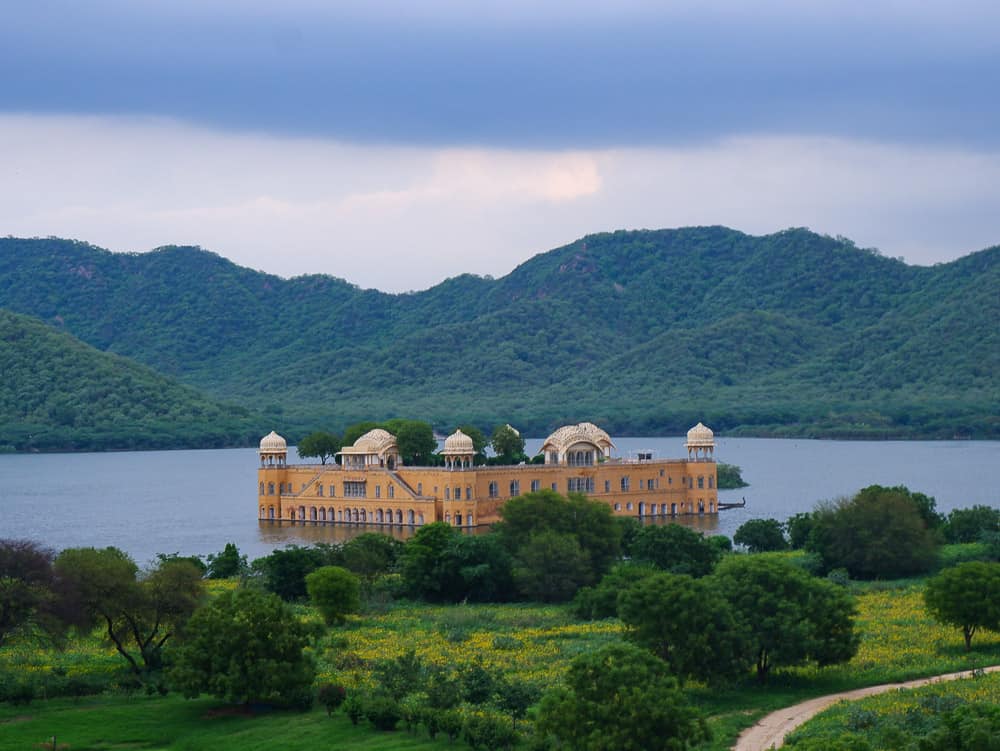
History of Jaipur
No guide to Jaipur can miss the city’s fascinating history. Jaipur is Rajasthan’s capital and a relatively young city. Founded in 1727 by Maharaja Sawai Jai Singh II, who ruled the Jaipur state from 1699 to 1744, this visionary leader created a plan that shaped the city for centuries to come.
Known as a scholarly prince passionate about astronomy, mathematics, and science, Maharaja Sawai Jai Singh II moved the capital from the hilltop (Amber Fort) to the plains, creating India’s first planned city in the process.
Jaipur’s design was based on Vastu Shastra, an ancient Hindu architectural system that integrates and balances nature’s five elements. The maharaja conceptualized the city as a mandala, with the crossroads (Chaupar) at its centre—like a town square.
The Pink City was built on a grid system with nine rectangular zones corresponding to the nine divisions of the universe. Different zones were allocated to different professions, featuring 119-foot-wide main streets perpendicularly intersected by 60-foot-wide auxiliary streets, further divided by 30-foot-wide lanes and 15-foot-wide byways.
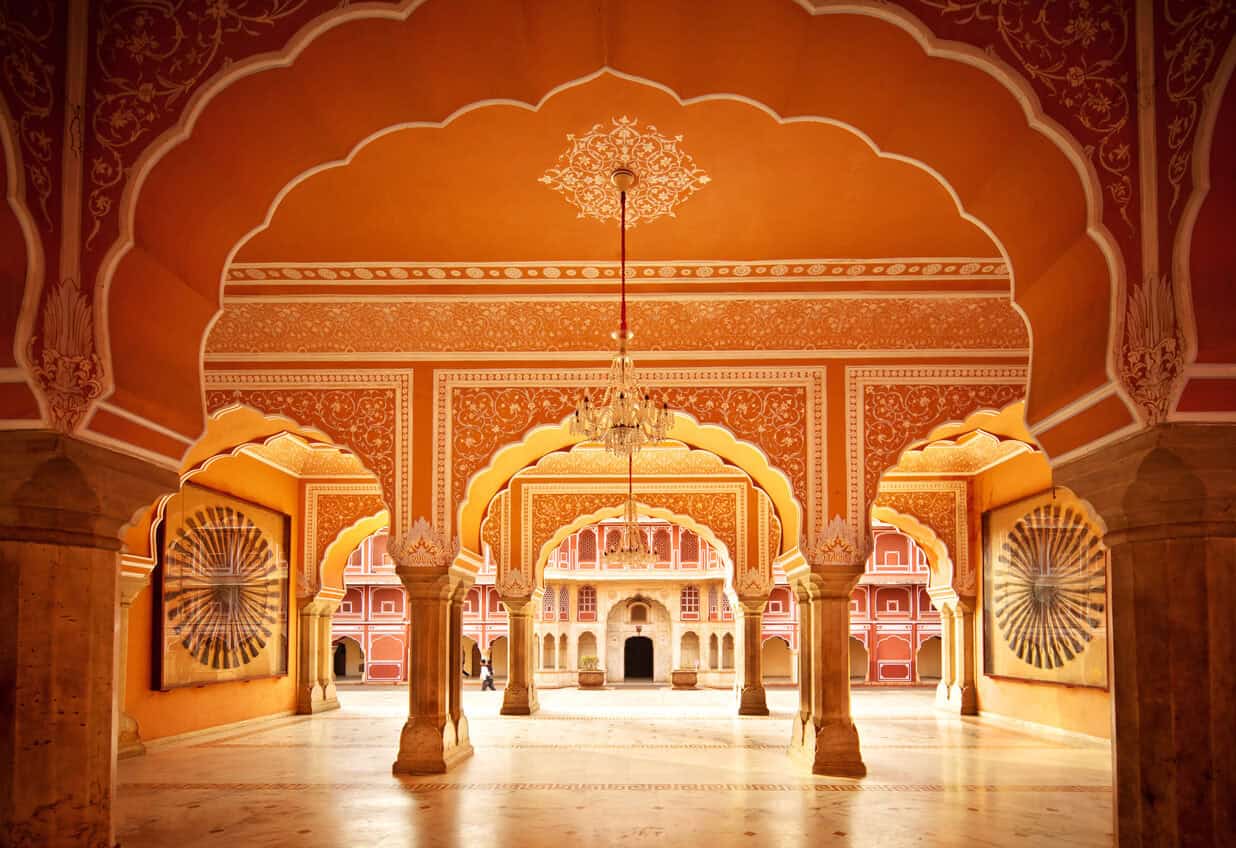
The main east-west street has a Chand Pol (moon gate) and Suraj Pol (sun gate) marking the sun’s rising and setting positions, giving the city its own sacred geography and natural topography.
Maharaja Sawai Jai Singh II included 36 kharkanas (workshops) dedicated to industries like jewellery making, miniature painting, and stone carving. With ample space for workshops and shops, he invited artists and craftsmen from across the country to make Jaipur their home.
In 2019, UNESCO declared Jaipur a World Heritage City for its exceptional “indigenous city planning and construction.” The city was conceived and developed in a single 18th-century phase using a grid-iron model inspired by the Prastara plan of Vastu Shastra. The state constructed main markets, shops, havelis, and temples on main streets, ensuring uniform street facades throughout Jaipur.
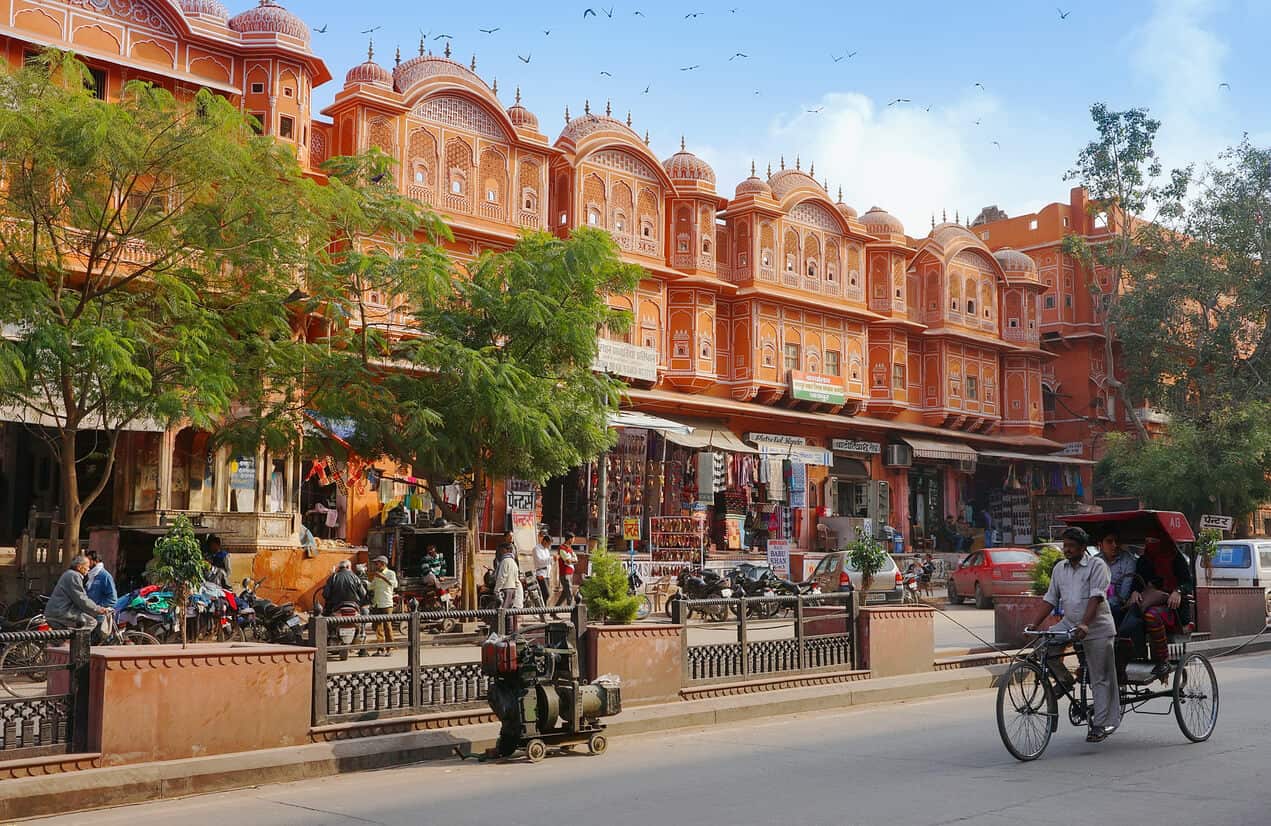
The Pink City
Many of Jaipur’s famous tourist attractions lie within the Old City walls, also called the Pink City. This is the planned city built by Maharaja Sawai Jai Singh II, including the City Palace (where the royal family still lives), the Jantar Mantar observatory with working astronomical instruments, and the iconic Hawa Mahal (Palace of Winds). Elaborate gates surround the old city, remnants of its original walls.
The Pink City also houses many markets and bazaars—such as Johari Bazaar and Bapu Bazaar—included in the city’s original plan. From the beginning, Jaipur was designed as a centre for arts, crafts, and trade, remaining true to that vision today.
The “Pink City” nickname originated in 1876 when Maharaja Ram Singh had the city painted pink for a visit by the Prince of Wales. The paint used pigment from local sandstone, creating more of a terracotta colour that gave Jaipur a dusky rose blush. Pink symbolized hospitality at the time, and the tradition continues—you’ll see plenty of pink throughout the Pink City. Our guide to to Jaipur ensures you will immerse in the Pink City.
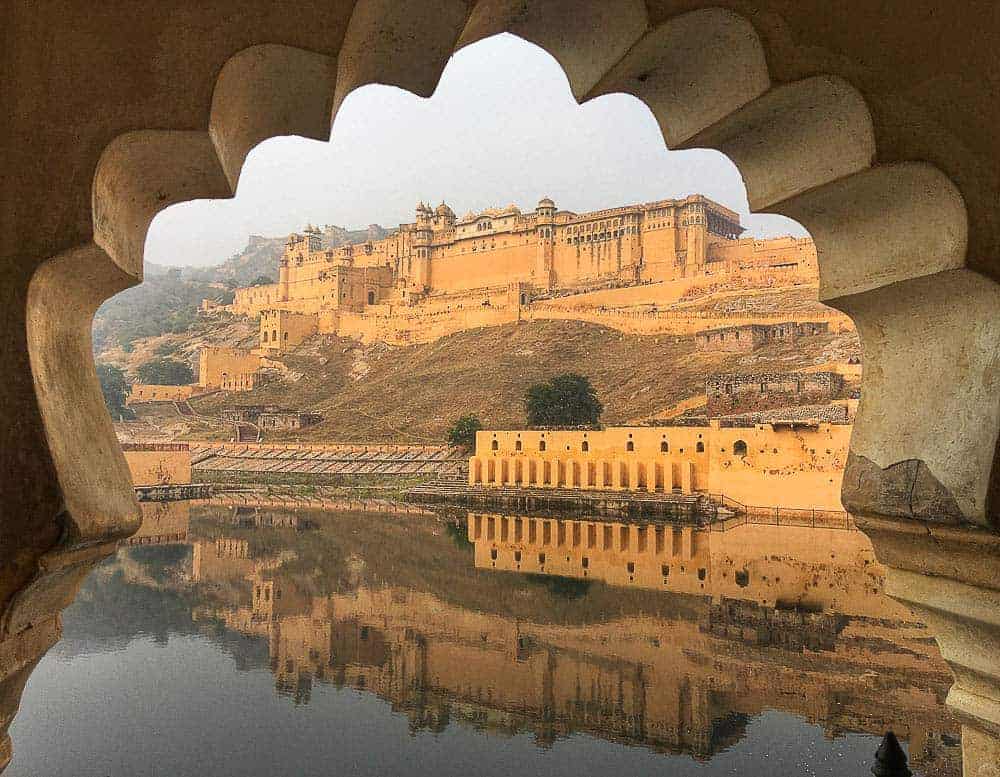
Amber Fort
Jaipur’s top tourist attraction is Amber Fort (the “b” is silent). This unmissable destination is one of six Rajasthan forts inscribed by UNESCO as a World Heritage site. Located about 11 kilometres from Jaipur in the town of Amer, this massive fort stands as a living testament to Rajput traditions and is the highlight of every guide to Jaipur.
Rajput ruler Raja Man Singh began construction in 1592. Over two centuries, successive rulers expanded it until 1727, when Maharaja Jai Singh II moved the capital to Jaipur.
The fort contains a palace divided into six sections, each with its own entry gate and courtyard. Some rooms remain elaborately decorated and well-maintained today. Other notable structures in the Amer area include Jaigarh Fort, Nahargarh Fort, Panna Meena ka Kund, and Jal Mahal.
Nahargarh Fort is worth visiting to see the recently restored Madhvendra Palace.
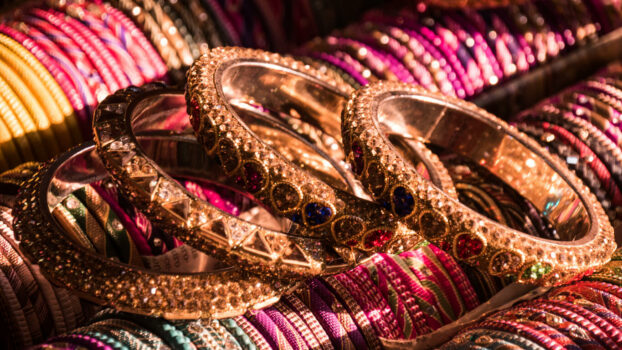
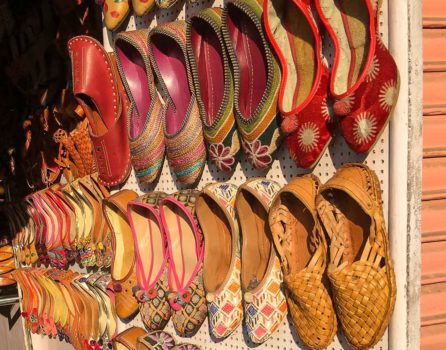
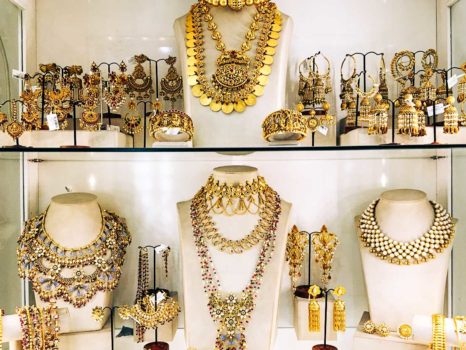
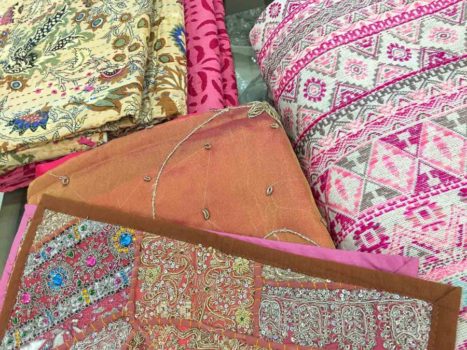
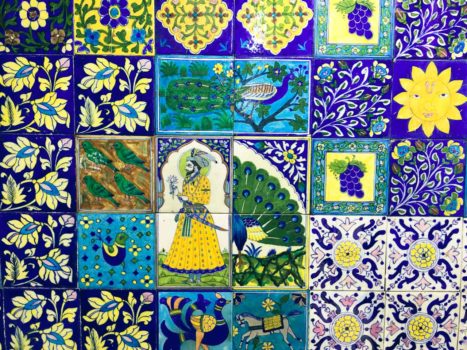
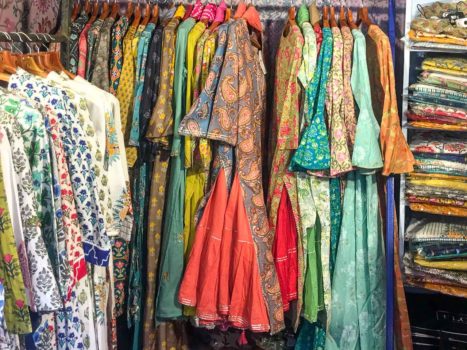
Shopping in Jaipur
Jaipur ranks among India’s best shopping destinations, without question. This city of artisans is famous for fabrics, textiles, clothing, handicrafts, rugs, jewellery, gemstones, lac bangles, leather shoes, wooden furniture, and countless other crafts.
Shopping here is particularly rewarding because of the city’s renowned markets, bazaars, and successful brand stores like Anokhi and Amrapali. Above all, Jaipur is celebrated for block-printed fabrics, clothing, and textiles including bedspreads, curtains, tablecloths, and wall hangings.
For centuries, Jaipur has been a hub for precious and semi-precious stones and is now the world’s largest centre for cutting and polishing gemstones. Jewellery stores are found throughout the city, with the famous Johari Bazaar in the Pink City dedicated entirely to gems and jewellery.
Mural painting is especially popular in Rajasthan, visible on Pink City walls, in homes, palaces, havelis, forts, hotels, restaurants, and many other locations.
Read my detailed Shopping in Jaipur Guide here.
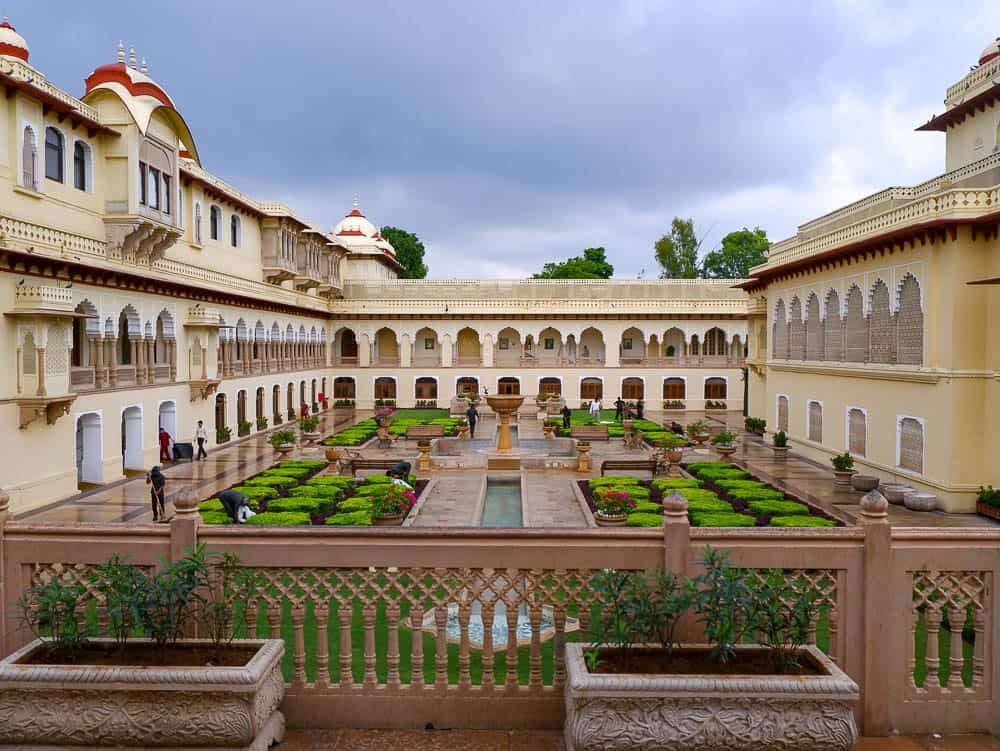
Where to Stay in Jaipur
Luxury hotels in Jaipur
- Rambagh Palace – The epitome of royal luxury, Rambagh is a real palace. It’s the former home of the elegant Rajmata Gayatri Devi, who decorated to her taste in a unique blend of Indian and European styles which creates a distinctly feminine feeling. My favourite hotel in India. Book here.
- Rajmahal Palace – This 18th-century palace was completely restored by designer Adil Ahmad. It’s a full-on display of design bravado in a European-esque palace with all the rooms named after famous guests, ranging from Queen Elizabeth II to Jackie Kennedy Onassis. Book here.
- The Johri – An authentic haveli turned suites hotel in the old city’s narrow lanes. The ground floor restaurant is lovely.
- Royal Heritage Haveli – Traditional grandeur with modern comfort. Slightly outside the centre of town. Book here.
- Samode Haveli. Authentic haveli hotel in the Pink City on very extensive grounds, with a large pool, fabulous restaurant, and a new wing with modern rooms. Book here.
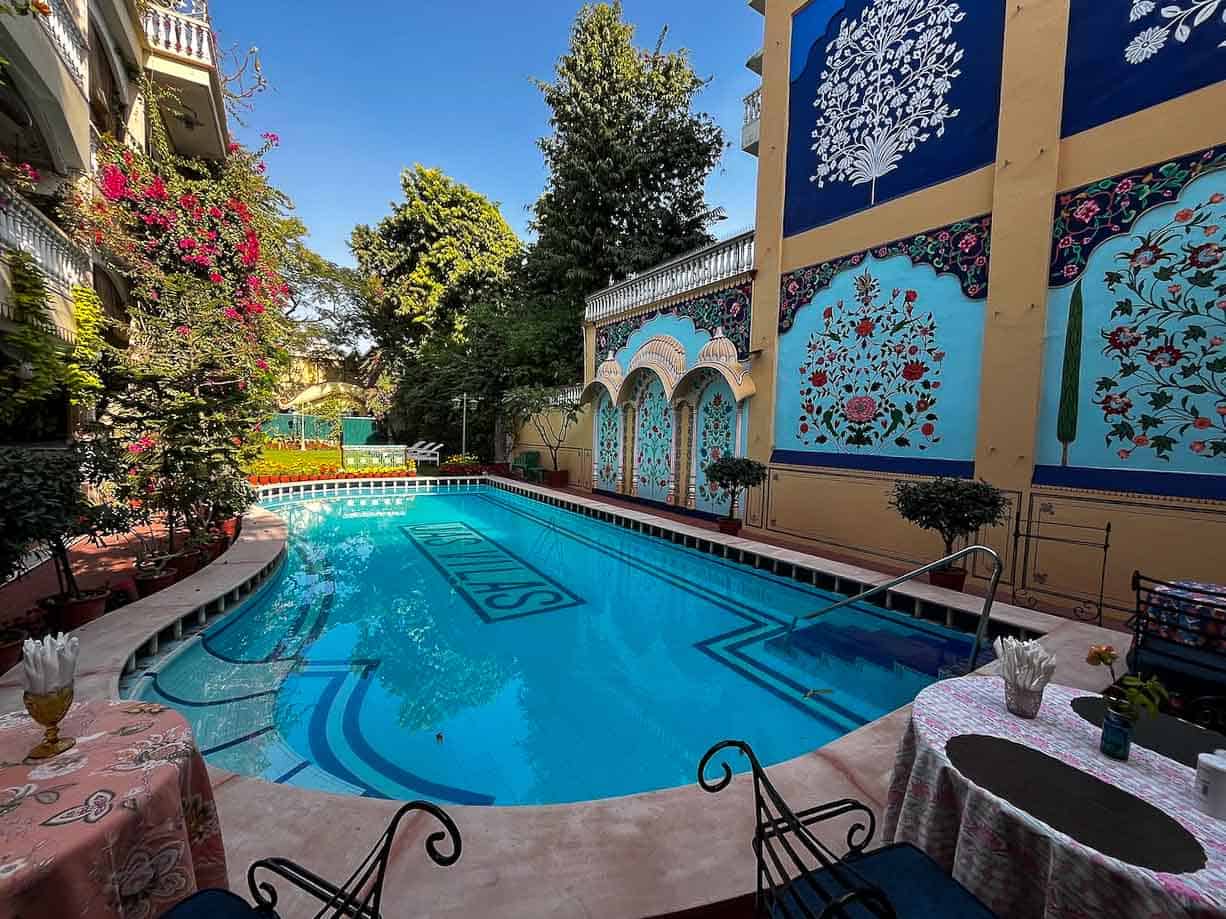
Mid-range hotels in Jaipur
- Jas Vilas – Charming heritage property with a lovely pool, lovely poolside cafe, and very warm staff. Book here.
- Shahpura House – Authentic royal experience on a smaller scale in Bani Park. Book here.
- Alsisar Haveli – A rambling, authentic haveli with a beautiful pool and ambience to spare. Book Here.
- Narain Niwas – A large sprawling haveli in the centre of Jaipur with heritage and modern rooms. Bar Palladio restaurant and the Kanota Courtyard shopping arcade are located on the hotel’s extensive grounds. Book here.
- Villa 243 – Contemporary comfort with character. Slightly outside the centre of town. Book here.
- Abode Jaipur – Brand new, chic, and hip hotel in the heart of the Pink City. Small rooms but great location.
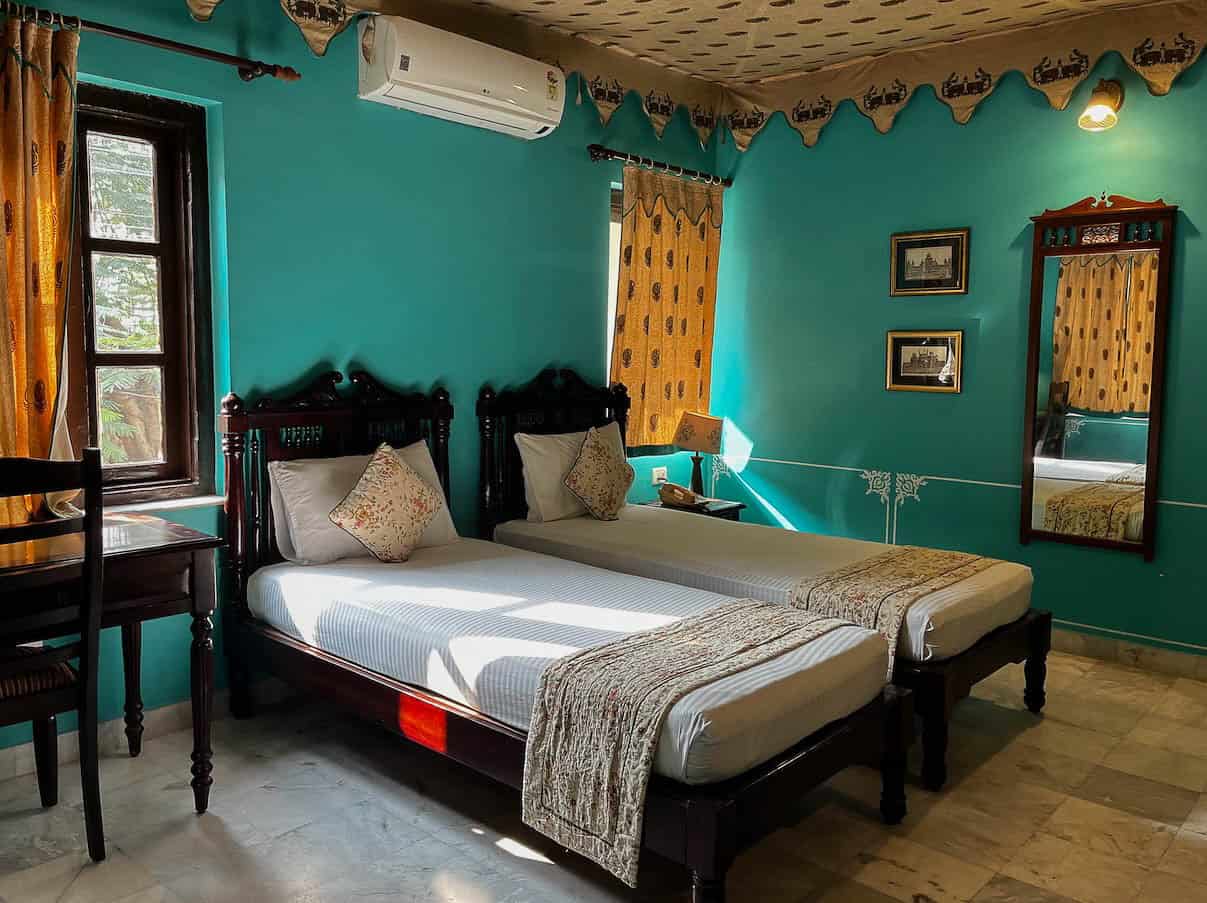
Homestays / BNBs in Jaipur
- Ikaki Niwas – Charming family-run heritage boutique hotel in a residential neighbourhood with great home-cooked food and a small rooftop pool. Book here.
- Bhola Bhavan Bed and Breakfast – An elegant, small homestay located in posh C Scheme, in the centre of Jaipur. Book here.
- Pink City Boutique Homestay – Intimate old city experience in an authentic heritage home inside the Pink City. Find it on Airbnb.
- Le Fort Homestay – Slightly eccentric boutique homestay with warm and friendly owners in great location.
- Lalluji Luxe – Beautifully designed flat in C Scheme entirely painted with black-and-white 2D murals. Find it on Airbnb.
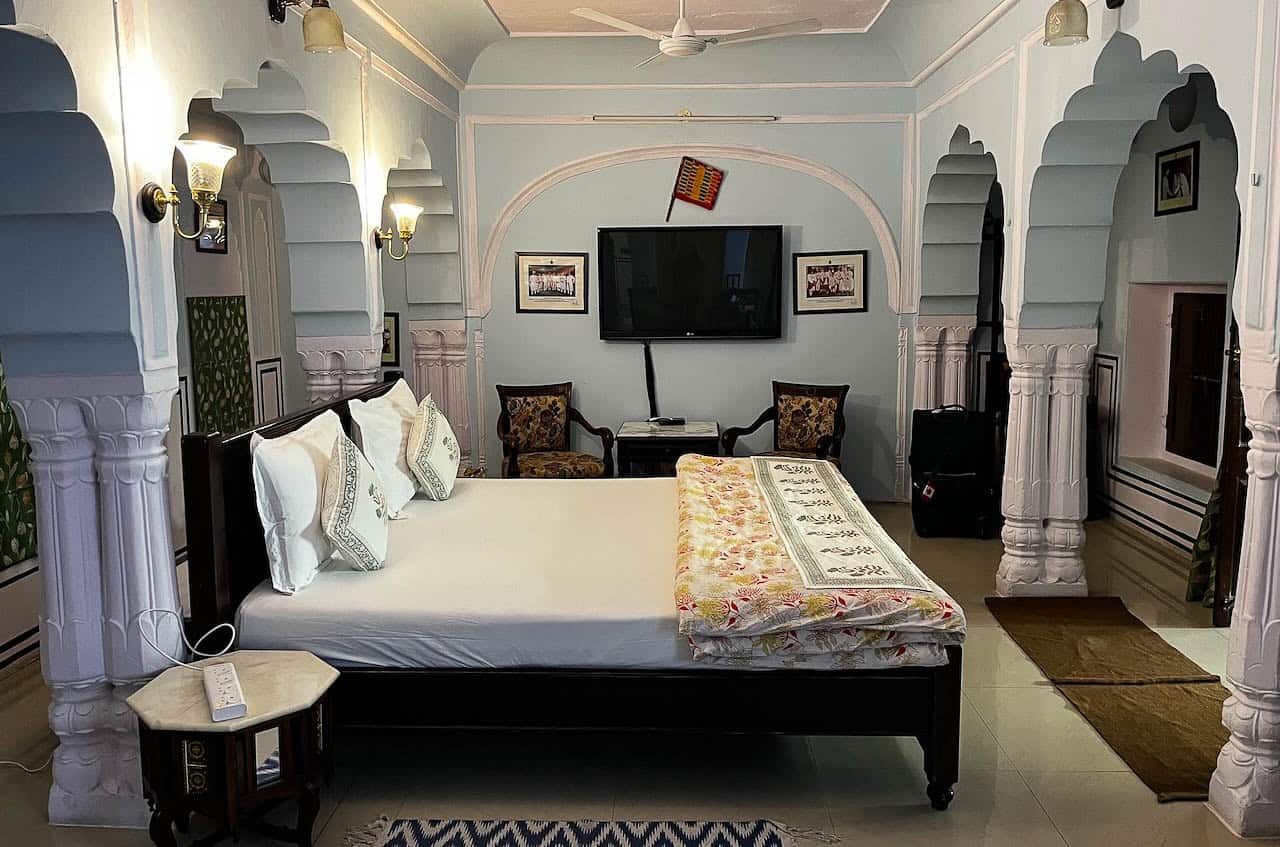
Budget hotels in Jaipur
- Arya Niwas – Reliable budget choice with a lively restaurant and large lawn. Book here.
- Pearl Palace – Backpacker favourite with character and a great rooftop restaurant. Book here.
Best Restaurants in Jaipur
Anokhi Cafe – Perfect for lunch with fresh salads, excellent baked goods, and a casual atmosphere. Located inside the flagship Anokhi store, making it convenient to shop and dine.
Niros – Ideal for lunch or dinner on busy MI Road. This classic establishment serves local specialties like Lal Maas in an atmosphere featuring white tablecloths and banquettes.
Cafe Auberge – My new favourite place! Home-style food in an upscale and romantic setting. Do not miss the house specialties — they are made from owner Parthvi Bhinder’s grandmother’s recipes.
Bar Palladio – One of the city’s hippest and most Instagrammable spots, featuring ample indoor and outdoor dining, fabulous cocktails, and an Italian chef. While most come for the cocktails and scene, the continental/Italian food is excellent.
Jaipur Modern – This upscale boutique houses a small cafe with indoor and outdoor seating. The sophisticated menu features healthy, delicious western fare in an atmosphere that feels like a cross between California and Jaipur.
The Verandah at Rambagh Palace – For a splurge, dine on the lawn at this iconic, gorgeous hotel and receive royal treatment.
Cafe White Sage / Meraaki Kitchen – Adjacent restaurants with charming outdoor seating and healthy global cuisine. Meraaki features Asian-fusion, while Cafe White Sage focuses on sustainability and locally sourced ingredients.
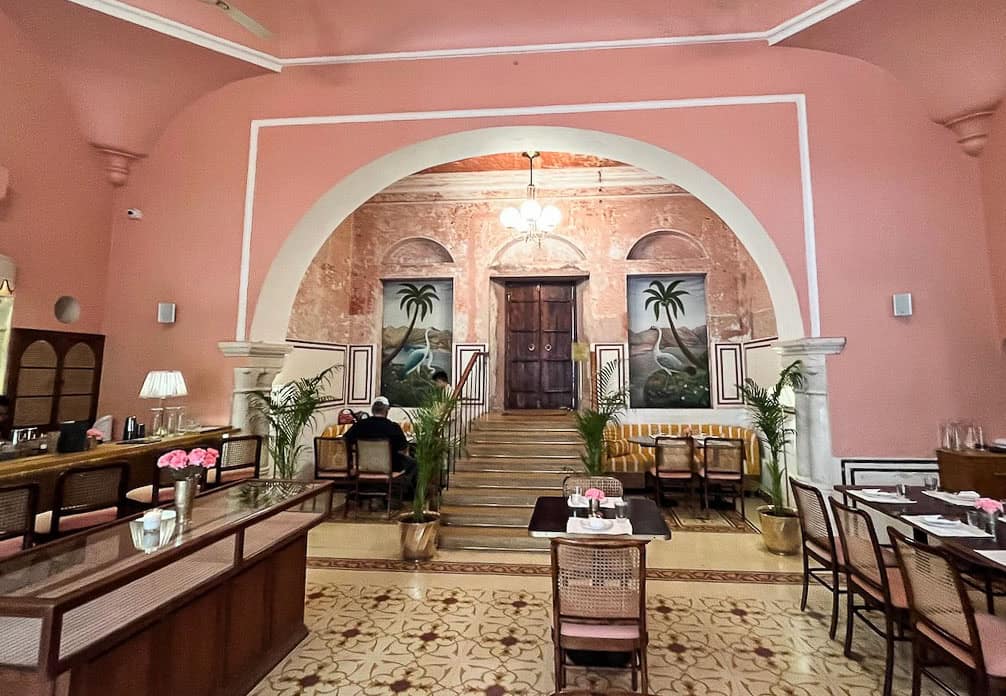
The Johri Cafe – Hidden in a narrow Pink City alley, this ground floor cafe feels like stepping through the looking glass. The storybook atmosphere complements an inspired vegetarian menu with outstanding food and drinks.
Agora – Another new favourite. If you can’t get in to The Johri, or want something a little different. Agora is in the same part of the Pink City and it’s a lovely place to eat fusion cuisine in a hip setting.
Cafe Kothi – A tiny gem in Civil Lines within the chic 28 Kothi boutique hotel. The limited but tasty menu features light fare and dishes inspired by Indian snacks.
Lassiwala – Among MI Road’s big jewellery stores, find the original 80-year-old Kishan Lal Govind Narain Agarwal Lassiwala (shop 312). This tiny hole-in-the-wall serves thick, fresh, delicious lassis in kulhad (clay) cups.
Coffee Culture – Jaipur is mad for coffee! Spots are everywhere, especially in C Scheme (the city centre and expat hub). My favourites include Curious Life Coffee Roasters, Half Light Coffee Roasters, and Coffee Sutra.
Roastery Coffee House – This sprawling multi-level cafe features its own stepwell! Affiliated with Colocal, it serves excellent coffee and chocolate plus a full lunch menu.
The Sarvato – Located in the heart of City Palace, this restaurant represents a collaboration between HH Maharaja Sawai Padmanabh Singh of Jaipur and restaurateur Abhishek Honawar. The menu showcases local ingredients and Rajasthani dishes, with a tasting menu priced at ₹8,000 INR. Open only during winter season.
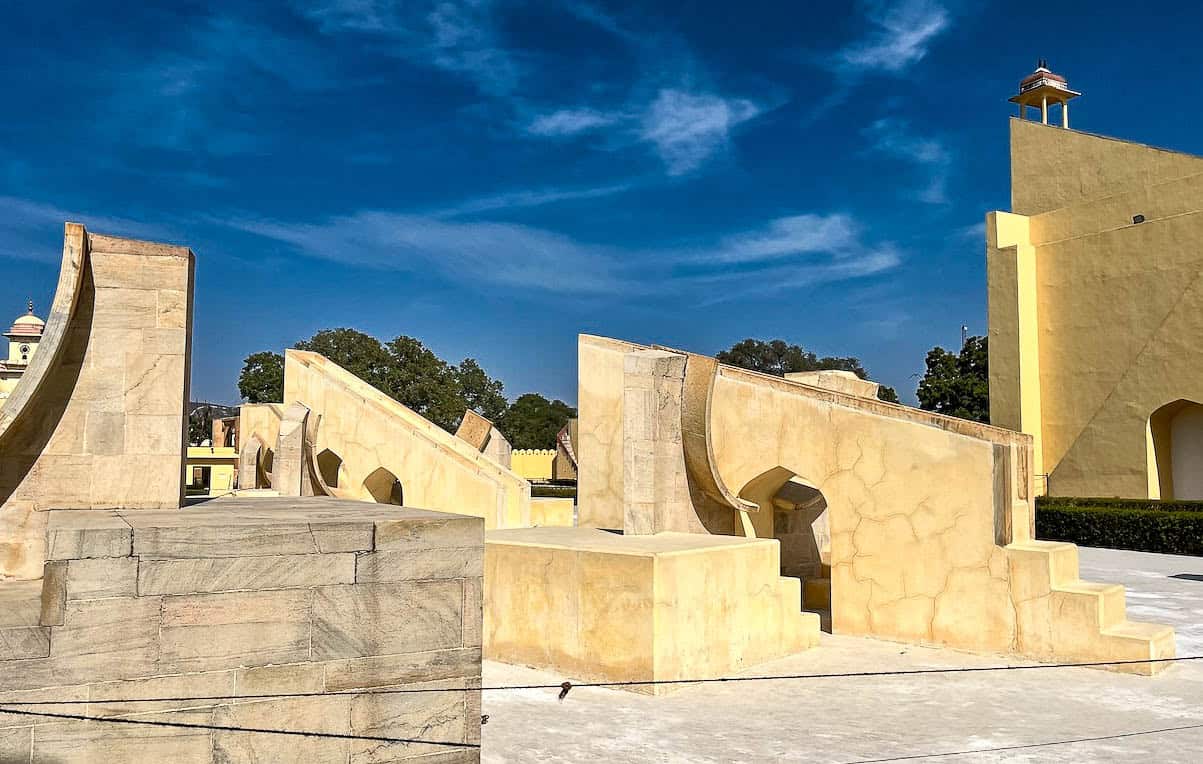
Places to Visit in Jaipur
Must-See Attractions
- City Palace – A jewel in the Pink City’s heart, home to the royal family since 1732. Large areas are open to the public, with the Royal Tour offering access to beautifully designed rooms like Sukh Niwas.
- Jantar Mantar. Impressive 18th century observatory with huge instruments that still work.
- Nila House – A beautiful space in a former mansion dedicated to textiles. Nila House includes a store, museum, and workshops.
- Rajmandir Cinema – India’s most glamorous movie hall!
- Amrapali Store and Museum – Amrapali jewellery store on MI Road in central Jaipur also runs a museum.
- Gyan Museum – Gem Plaza jewellery store on MI Road in central Jaipur also runs a magnificent centre on the outskirts of the city that houses their factory, a jewellery store, and a fascinating museum of artifacts collected by the company’s founder.
- Chameli Market. Wholesale market off MI Road that specializes in silver jewellery and gemstones.
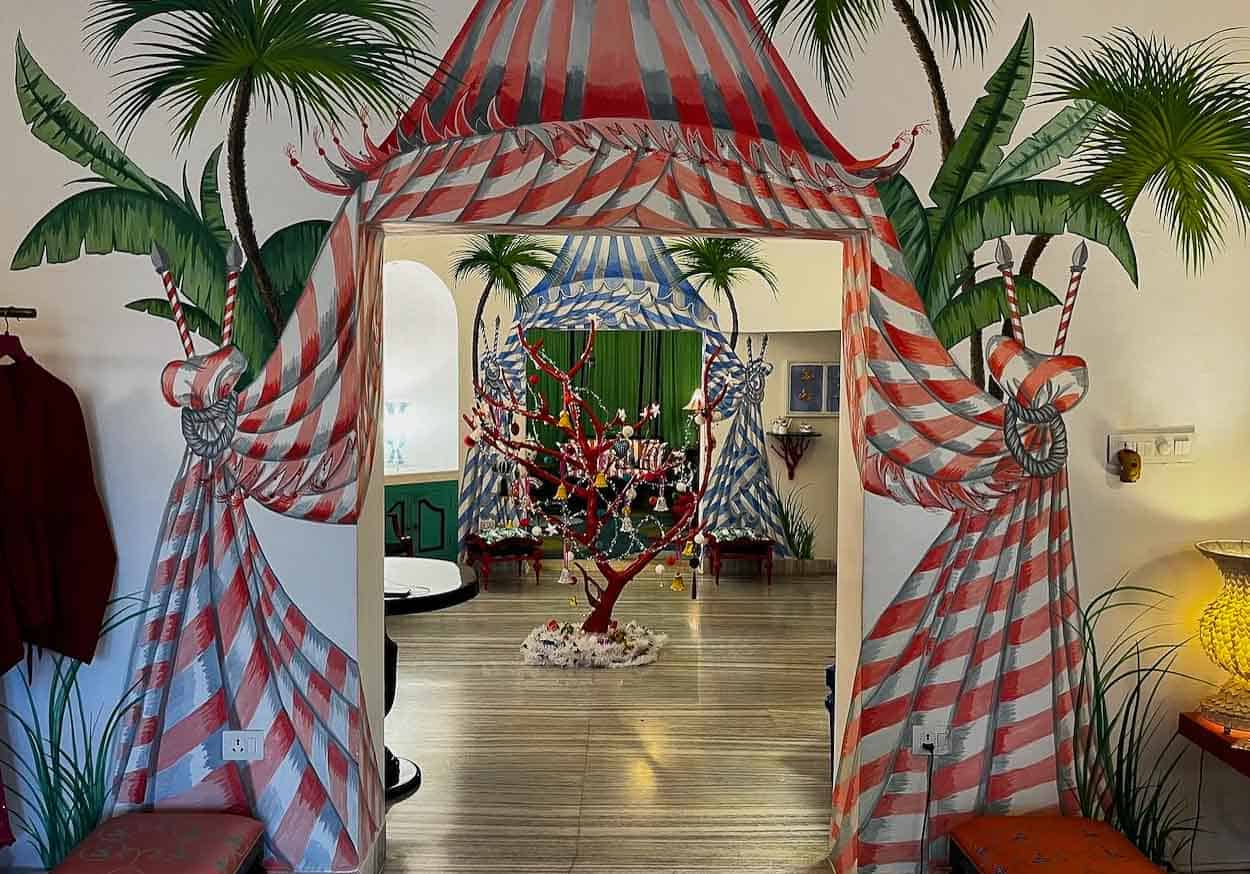
Notable Mentions
- Bar Palladio – Well-known nightlife staple and arguably the most Instagram-friendly restaurant, located on the historic Hotel Narain Niwas grounds.
- IDLI by Thierry Journo – One of Jaipur’s most beautifully designed stores, featuring whimsical patterns on clothing and household items.
- The Johri – A boutique hotel hidden in old city back lanes, this beautifully restored haveli features a ground floor cafe and handful of gorgeous themed suites.
- Rajmahal Palace – Former home of renowned beauty Rajmata Gayatri Devi, this 18th-century palace was completely restored by designer Adil Ahmad and appears on Accidentally Wes Anderson alongside other Jaipur locations.
Iconic Jaipur
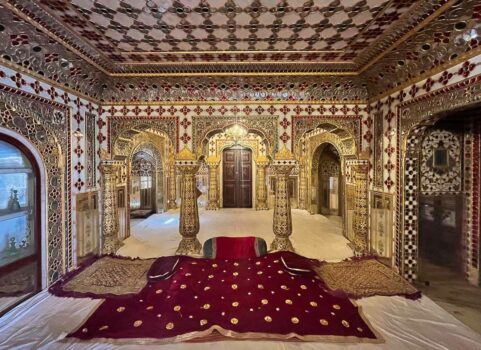
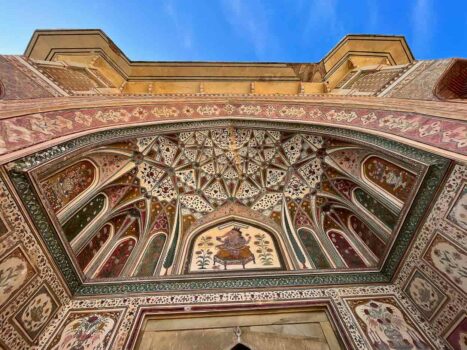
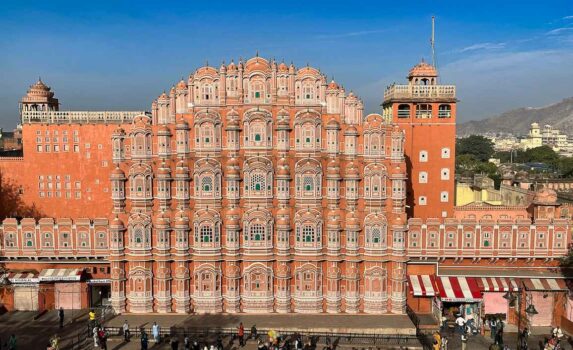
If you enjoyed this post, you can.
Sign up for Dispatches in the sidebar and follow Breathedreamgo on all social media platforms including Instagram, Facebook, Pinterest, and Twitter. Thank you!


